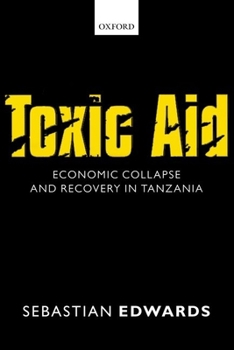Toxic Aid: Economic Collapse and Recovery in Tanzania
Select Format
Select Condition 
Book Overview
For many years Tanzania was the darling of international aid agencies. During the 1970s it received more assistance per capita than any other nation in the world. And yet, the economy performed dismally: growth was negative, exports collapsed, and poverty increased massively. In the mid-1980s, however, the international community changed tack and developed an approach based on conditionality and "program ownership". Since 1996 the country has grown steadily, and social conditions have improved significantly. This book provides an economic history of Tanzania since independence in 1961. It covers the policies of African Socialism and the Arusha Declaration, the collapse of the early 1980s, the rocky relationships with the IMF, and the reforms of the 1990s and 2000s. This book shows that the relationship between foreign aid economic is highly complex, and that the effect of foreign assistance on poor countries performance depends on historical circumstances, ownership of programs,
and the involvement of the local communities.
and the involvement of the local communities.
Format:Hardcover
Language:English
ISBN:0198704429
ISBN13:9780198704423
Release Date:June 2014
Publisher:Oxford University Press (UK)
Length:316 Pages
Weight:1.10 lbs.
Dimensions:1.2" x 5.5" x 8.6"
Customer Reviews
0 rating





